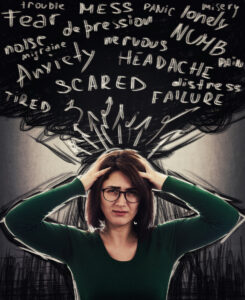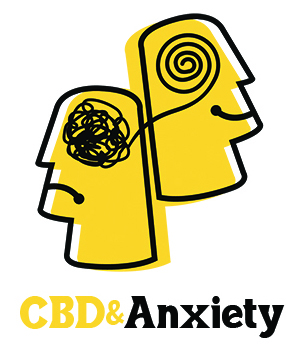 In recent years, the landscape of cannabis consumption has evolved dramatically, with THC vapes emerging as a popular choice. As their prevalence rises, so does curiosity about their potential benefits and drawbacks, particularly in managing anxiety. For those who are cannabis enthusiasts, health-conscious consumers, or anxiety sufferers, understanding the complex relationship between THC vapes and anxiety is crucial.
In recent years, the landscape of cannabis consumption has evolved dramatically, with THC vapes emerging as a popular choice. As their prevalence rises, so does curiosity about their potential benefits and drawbacks, particularly in managing anxiety. For those who are cannabis enthusiasts, health-conscious consumers, or anxiety sufferers, understanding the complex relationship between THC vapes and anxiety is crucial.
In this blog post, we delve into the nuances of how THC vapes may impact anxiety. From scientific research findings to personal anecdotes, we aim to provide a comprehensive overview that will help you make informed decisions.
Understanding Anxiety
What is Anxiety?
Anxiety is more than just occasional worry or fear; it’s a pervasive condition that can significantly impair daily functioning. It encompasses various disorders, including Generalised Anxiety Disorder (GAD), panic disorder, social anxiety disorder, and specific phobias. Common symptoms include:
- Excessive worry or fear
- Restlessness
- Fatigue
- Difficulty concentrating
- Irritability
- Muscle tension
- Sleep disturbances
Common Treatments
Traditional treatments for anxiety often include:
- Medications: Such as selective serotonin reuptake inhibitors (SSRIs) and benzodiazepines.
- Therapy: Cognitive-behavioural therapy (CBT) and other forms of psychotherapy.
- Lifestyle Changes: Exercise, diet, and mindfulness practices.
Despite the availability of these treatments, many individuals seek alternative or complementary methods to manage their symptoms, which brings us to the role of THC vapes.
The Role of THC Vapes
How THC Affects the Body
THC, short for tetrahydrocannabinol, is the psychoactive compound found in cannabis. When consumed, THC interacts with the body’s endocannabinoid system (ECS), which plays a role in regulating mood, stress, and anxiety. Please note that as THC is psychoactive, using it in substantial amounts will make you high; using THC via a THC vape pen, for example, can be detrimental to your anxiety due to the nature of THC unless you are using THC, which is less than 1000mg in which case it will not get you high and will get you a calming effect.
THC vs. CBD
It’s important to differentiate between THC and cannabidiol (CBD):
- THC: Psychoactive, can induce euphoria, and has been found to both alleviate and exacerbate anxiety, depending on dosage and individual response.
- CBD: Non-psychoactive, often touted for its anxiolytic (anxiety-reducing) properties.
While CBD has gained a reputation for its calming effects, THC’s impact on anxiety is more complex and warrants further exploration.
Research Findings
Current Studies
The scientific community is actively investigating the relationship between THC and anxiety. Some studies suggest that low doses of THC can reduce anxiety, while higher doses may increase it. Key findings include:
- Low Doses: May have anxiolytic effects by activating the ECS.
- High Doses: Can potentially exacerbate anxiety symptoms due to overstimulation of the ECS.
Limitations and Bias
However, it’s crucial to note that much of the available research has limitations, such as small sample sizes and potential biases. Moreover, the legality of THC varies widely, complicating large-scale, controlled studies.
Personal Experiences and Testimonials
Real Stories
To better understand the real-world impact of THC vapes on anxiety, we’ve gathered personal stories from individuals who have experimented with them. These testimonials offer varying perspectives:
- Sarah W.: “Using a THC vape pen at a low dosage has helped me manage my social anxiety. It calms my nerves without the disorienting effects I get from higher doses.”
- John M.: “THC vapes did not work well for me. They increased my heart rate and made me feel more anxious, especially in stressful situations.”
Dosage and Effects
It’s clear that individual responses to THC vapes can differ dramatically. Factors such as the strain of cannabis, the concentration of THC, and personal tolerance levels all play a role.
Risks and Considerations
Potential Risks
While THC vapes may offer relief for some, they come with potential risks:
- Legality: THC remains illegal in many regions, posing legal risks.
- Dependency: Regular use can lead to tolerance and dependence.
- Health Concerns: Vaping has been associated with lung issues, and the long-term effects are still unknown.
Recommendations
For those considering THC vapes for anxiety management:
- Start Low and Go Slow: Begin with a low dose and gradually adjust to find what works for you.
- Consult Healthcare Professionals: Always consult a healthcare provider before starting any new treatment.
- Be Mindful of Legal Status: Ensure you are aware of the legal status of THC in your region.
Alternatives and Complementary Therapies
Non-Psychoactive Alternatives
If THC vapes aren’t suitable, several alternatives and complementary therapies can help manage anxiety:
- CBD Vapes and Oils: Offer potential anxiolytic effects without the psychoactive properties of THC.
- Herbal Supplements: Such as valerian root, kava, and chamomile.
- Mindfulness Practices: Meditation, yoga, and breathing exercises can significantly reduce anxiety symptoms.
The relationship between THC vapes and anxiety is complex and multifaceted. While some individuals find relief through low doses of THC, others may experience heightened anxiety. As with any treatment, it’s essential to approach THC vapes with caution, awareness, and professional guidance.
Remember, what works for one person may not work for another. The key lies in informed decision-making and a willingness to explore various options. If you have personal experiences or thoughts about using THC vapes for anxiety, we’d love to hear from you. Share your story in the comments below or reach out to us directly.
By staying informed and open-minded, we can continue to navigate the evolving landscape of cannabis and anxiety management together.
